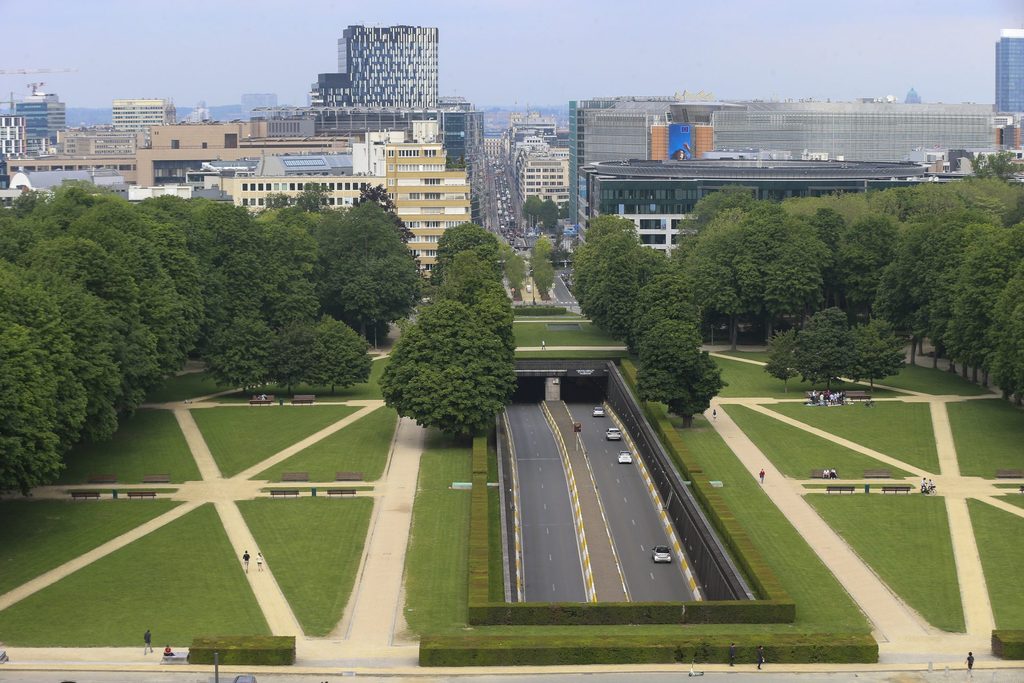One organisation is battling to stop the destruction of green spaces in Brussels, warning it will even revert to legal action to do so.
The “We Are Nature.Brussels” campaign was launched on Friday, aiming to hold the Brussels-Capital Region Government to account so as to respect its climate commitments. Specifically, they are calling for Brussels to declare a moratorium on the destruction of "living soils and natural spaces" in Brussels, and by doing so, maintaining the region's resilience in the face of the effects of climate change.
"There is an urgent need to anticipate climate change in Brussels. If the government does not grant our demand, we will go to court in September to obtain our goals that way," said Bernadette Stallaert of the Forum Des Jardiniers (Brussels Gardeners), the organisation behind the project, said.
"Citizens are increasingly taking legal action to make themselves heard, this is the approach we too are now taking to make the Brussels government take its responsibility."
Protecting from climate change
The Forum Des Jardiniers had already drafted a manifesto last year to call for this moratorium, supported by a petition with 40,000 signatures from citizens which has now been co-signed by 64 collectives and associations.
It has also repeatedly asked the Region for its plans on how it would respect its climate commitments while continuing to destroy open spaces which have the capacity to both reduce the concentration of greenhouse gases and mitigate the effects of climate change, from heatwaves to droughts and floods.
"We have not received any response to these questions," said Stallaert of the Forum, adding that meanwhile, temperatures in the region have increased, transforming it into a heat trap. "It is, therefore, crucial to give it more space and to grant it stronger protections, as has just been proposed by the Citizens' Assembly for the climate in Brussels."
Not backing down
More recently, the Forum Des Jardiniers looked into giving natural areas in Brussels protected status in the Regional Land Use Plan (PRAS), which determines which areas in the Brussels Region can be built on, and which cannot, and is currently being revised to be finalised by 2025.
"At the current rate of destruction of open space and nature, many natural sites will have disappeared under a layer of concrete or fallen victim to an excavator by that date," the organisation said earlier this year.
It called for the suspension of the destruction of nature to be included in the PRAS, which it argued must be climate-resilient.
However, the regional planning bureau Perspective.Brussels in charge of the PRAS argued that its priority is to propose a territorial vision that "strikes a balance" between meeting the socio-economic needs of citizens and developing an environmentally sustainable city. It added that each of its urban projects safeguard green spaces that become non-constructible and proposes the city-nature balance mentioned above.

The picture from 1977 shows people in a park of Brussels. On the background, buildings being demolished. Credit: Belga Archives
"Of course, the climate challenges facing us mean that we must take advantage of the forthcoming amendment to the PRAS to fully address the issue of strengthening the Region's environmental framework," it concluded.
State Secretary for Urbanism Pascal Smet told The Brussels Times that the tension between building and not building, and preserving nature or erecting buildings is a challenge facing many other cities.
"We have seen that it is very much possible to promote biodiversity and build at the same time, and that's what we need to do in Brussels. If the call for the moratorium continues to fall on deaf ears in the coming months, legal action will follow," We Are Nature.Brussels said.
Citing the signing of the Paris Agreement in 2015, the organisation says that the Region has committed itself to take measures related to the reduction of greenhouse gas emissions, protection of carbon sinks and adaption to the effects of climate change. "It is on these last two aspects that the legal action will focus mainly."

